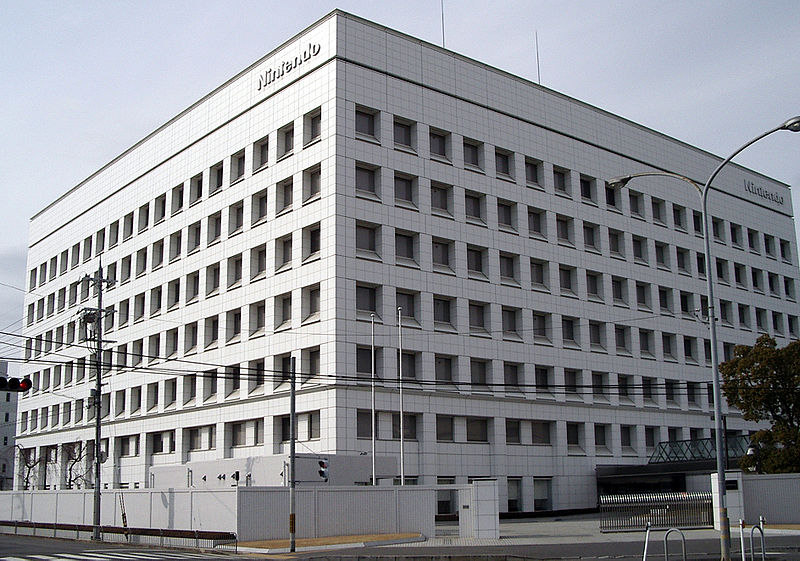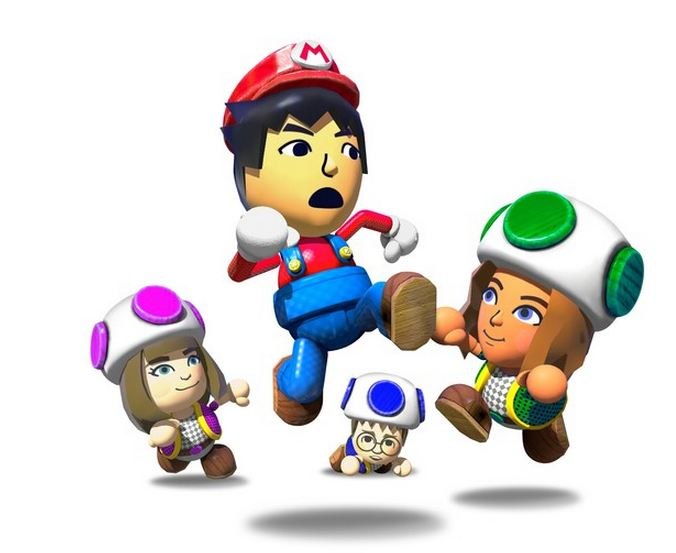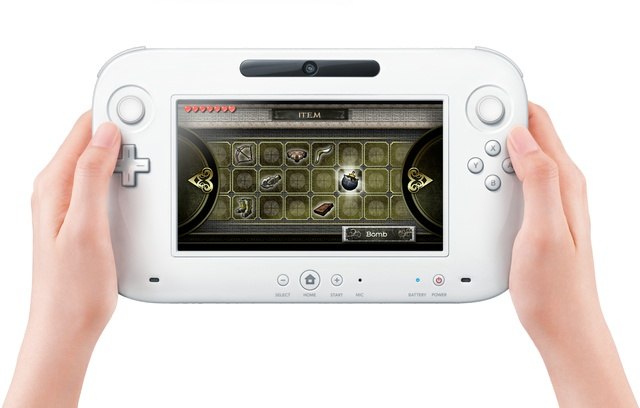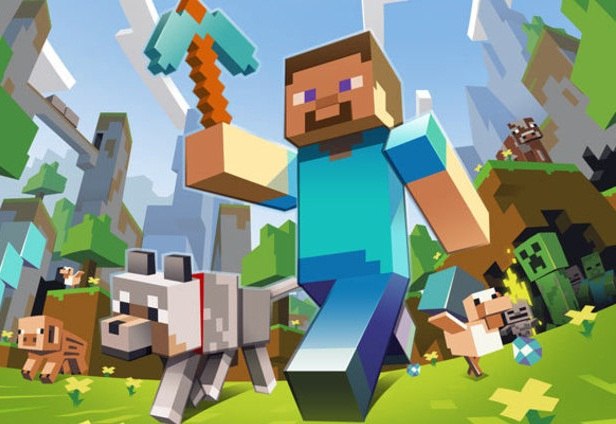Talking Indies With Nintendo
Dan Adelman and Damon Baker discuss breaking down the "locked gate" nature of the company and what the future holds for digital games on Nintendo platforms.
Much of the discussion regarding indie games of late has been focused squarely on the efforts Microsoft and Sony have made with their next-generation consoles, while Nintendo has sat in the background. But that's not to say the Mario maker isn't also working on improving its relationship with indie developers.
Speaking with GameSpot at PAX Prime, manager of business development Dan Adelman and senior marketing manager for licensing Damon Baker spoke candidly about the challenges of perception Nintendo has faced and what the future holds for digital games on Nintendo systems.
I've heard Nintendo described as like maybe the Willy Wonka candy factory of the gaming world. You do things in secret, pump out a lot of unique games, and you have your own set of rules.
Adelman: I think that's something we're guilty of rather than something we want to boast about. And that's something that we're actually trying to change. We kind of historically have presented ourselves as very--what's the right word--monolithic is probably not the vibe I'm going for. But it's a very uniform company. Like 'this is the company's stance.' We have Mr. Iwata [and] Mr. Miyamoto explaining the company's philosophy on issues. And I think more and more we're realizing we need to make sure that everyone understands that there are actual people who work at Nintendo and we're accessible and we can be reached and contacted. So I think we're trying to do a better job at that outreach and breaking down this idea that there's something behind those locked gates and no one can see what it is.
With the Wii U and 3DS eShops, how would you rate their progress? They're both relatively new. What do you think went well? What do you think you need to improve going forward?
"I think we're trying to do a better job at that outreach and breaking down this idea that there's something behind those locked gates and no one can see what it is." -- Adelman
Adelman: I think, so far they are going really well. We've got a really good pipeline of games coming for the Wii U eShop, especially with our deal with Unity. So providing all the Unity tools for free. So there's a lot of good content coming and we made a big emphasis this generation on our ability to merchandise games and show the best games, the ones that consumers are really enjoying the most; making sure that everyone can find those really easily and complete the transaction. In contrast to, maybe the Wii shop and the DSi shop where that was a lot more challenging; we heard a lot feedback that that has to be improved. So I think it's a night and day better experience, but I also think there's much more we can do just to make it even easier and more flexible.
Baker: To add to that, the flexibility with business models now means that the control is in the hands of the content provider. So in terms of pricing, in terms of launch date, it adds for greater flexibility in terms of what we can offer and how we can promote all of this great content.
Going off that, do you fully support free-to-play and episodic and things that people haven't even thought about yet? How flexible are you to going back and looking at your policy?
Adelman: Episodic actually, our first episodic series was on WiiWare; Strong Bad's Cool Game for Attractive People by Telltale. Then we followed it up with the Tales of Monkey Island series, so yeah, episodic is not necessarily new to us. Free-to-play is something that's relatively new to us, and we allow it and we've got some games in the pipeline that are planning on supporting that.
But in terms of business models that we can't even conceive of yet; how open are you to sitting at the table with developers and talking those things through and seeing what can be possible?
Adelman: Oh, definitely open to ideas. And we've already got a long list of things we'd like to support and we're developing out the back-end to put those hooks in and make it more flexible. Nothing specific to announce right now. But there's a dedicated team in Japan right now that's working on building out the functionality, so as we hear about new ideas, new things that people want to do, we want to be able to respond very quickly to those opportunities.
What are some of the challenges you face when you're interfacing with developers?
Baker: One thing that we're addressing right now is expectations. Similar to what Dan was saying before, it's a matter of doing a bit more education on our part of what those guidelines are and how it's easier than ever before to be making games for Nintendo platforms. And just giving as much visibility to those initiatives as possible. So that, to me, is a barrier because I think some developers look at Nintendo and there is this iron gate in order to get content through and we just want people to know…that it's really, we're trying to make it as easy as possible and it's easier than ever before to bring that content over.
What kind of feedback have you received from developers?
Adelman: Developers seem to be overwhelmingly positive. Some of the major changes that we've made actually still haven't been well communicated yet. We've put the message out there and I think we have to keep hammering home the message because we need to make sure that people hear about it. We used to have a lot of barriers on the way to releasing games on our platforms. One example would be, we used to require that developers work out of an office that's separate from their home, and that was a big barrier for a lot of indie developers. And we got rid of that. And still, I talk to developers today who will say, "Yeah, I'd love to make a game for a Nintendo platform, but I work at home." So I have to say "Actually, about six months ago, maybe it was nine months ago, we announced that we changed that policy."
Or Unity is another good example. We did a deal with Unity where you don't have to pay any platform fees or pay for the tools. And for people who haven't heard of that, most people will go in under the assumption that in order to release their Unity game on console, you have to pay usually I think it's tens of thousands of dollars per platform, and when I tell them 'No, we've actually covered that for you' they're like 'Oh, well, great.' Or there's this expectation that dev kits are a lot more expensive than they are. In reality, they're about the cost of a decent PC. So people are surprised at that. So I think as much as…we've already made all these announcements and people are aware of it, there's still a lot more work that we need to do to make sure that everyone's aware of how we operate.
That brings to mind, I know the game Bastion was built by people in their house. So breaking down those walls certainly seems like it's going to help.
Adelman: Yeah, absolutely. And the Bastion guys are great.
With the rise of mobile and tablet games, and digital platforms like the Xbox 360 and PS3, the expectations like you said are certainly shifting. What can Nintendo offer that these other platforms can't?
Adelman: Well really, first of all, [a] really low barrier to entry. Because of our deal with Unity, if they're making a game in Unity: easy. Also, the Wii U really has the best of both worlds in terms of traditional console and tablet gaming, so if you're making a game that requires a touch interface, we can do that. If you really would benefit from having dual thumbsticks, you can do that as well. There's also new avenues of gameplay even if you're really just taking a game and releasing it or releasing it on multiple platforms. Because of having two screens for example on the Wii U, there's a lot of ways you can just make the game better that you wouldn't be able to do on other system.
"Or there's this expectation that dev kits are a lot more expensive than they are. In reality, they're about the cost of a decent PC." --Adelman
We were having dinner with Pwnee Studios, who did Cloudberry Kingdom the other day; one point that they mentioned that they didn't expect was how powerful the Miiverse community is. They found that by being able to engage their fans directly on the console, and enabling them to draw pictures and share screenshots, and just share their love of the game that has been really powerful in generating enthusiasm for the game. Gaijin Games has also done a really great job; they've done some drawing contests, they've done this build-a-story weird thing where they'll start one sentence and then everyone chimes in and adds; and then they read it on YouTube later and the story goes on for literally like an hour and I don't know who's watching that thing for an hour, but they're narrating it and the stories are just so incredibly [weird].
They're engaging with their fans in that way.
Adelman: Absolutely. Yeah. I think one of the things that indie games has going for it that really major publishers can't have or struggle to have, is that direct relationship with the creator of the game. So the thing that I really like about indie games is so much of the developer's personality shows in the game and so if you can communicate that energy and excitement about the game from the developer to the end player, then it winds up being a really powerful relationship.
The Wii U obviously has its specific tablet-like features and the 3DS…it's obviously 3D. Is there any kind of [special] placement or promotion or anything like that if a developer says I'm going to take advantage of the Gamepad, I'm going to use 3D?
Baker: Absolutely. We love to highlight those points of differentiation. And we're utilizing press releases and newsletters and merchandising in the eShops and utilizing Miiverse to communicate all of these things. So I think there are a number of tools that we have at our disposal to really highlight those quality pieces of content [and] what really sets them apart. If it's available multi-platform, that's certainly not a deterrent for us in promoting it. We want to promote that quality content anywhere and everywhere we can.
Adelman: Whenever there's a game that's so designed around the feature-set of the console that they can't do it anywhere else, I think we feel a special obligation that 'Alright, we really need to back these guys because they made a big bet on our platform.' So we want to do what we can to help them. But as Damon was saying, we really want to just make sure we're highlighting the best games and quality comes first.
Baker: And that goes back to this eShop intiative in general. It's just how do we drive as much awareness that Nintendo eShop exists as possible. And I think our presence here at PAX, at the developer events, getting exposure at retail outlets like GameStop; there are a number of things that we're doing to help drive the visiblity and kind of treating it like an umbrella brand for all this amazing content that's available there.
Looking forward, what kind of ambitions do you have for the Wii U and 3DS eShops? How do you envision them progressing and evolving and maturing over time?
Adelman: I think we want to keep making investments in terms of flexibility of the eShop in terms of new business models, making it easier to navigate and increased discoverability would probably be at the top of my list. We've announced recently that we're working on tools that will allow you to buy games just from your web browser and other kinds of initiatives just to make it easier for people to get the games that they want.
I think it was at GDC you announced a new website. Can you talk about what the response has been to this in the months following?
Adelman: The URL is WiiU-developers.Nintendo.com. It's been overwhelming. We've gotten probably over 1,000, I don't know if we've hit 2,000, developers with really wide-ranging levels of experience. We've got some who have recently left their jobs in mainstream publishers and are starting a new company, or have been indies for a while. All the way to high school students who are thinking of getting into game development and want to know more about it. So one of the challenges is going through and it's ultimately a resource allocation issue at that point. We want to support everybody, so how do we do that in the most effective manner and how do we prioritize in just making sure that--our intent is to support everyone, really. The underlying philosophy is that if you can make a game on our systems, we want to find a way for you to be able to do that.
"The underlying philosophy is that if you can make a game on our systems, we want to find a way for you to be able to do that." --Adelman
I heard you were scouting for new projects at [Gamescom]. How did everything go there?
Adelman: It went well. We did some presentations about the development tools like the Nintendo Web Framework; we did a presentation with Unity--a developer from Unity talking about here's how the Wii U version of Unity Pro 4 works. And I wouldn't necessarily characterize it as scouting for new content as much as making sure people knew how they could take advantage of this if they wanted to. So more of a welcoming strategy, rather than grabbing and pulling.
It's no big secret that the Wii U's kind of struggled so far. I think we're at 3.6 million units across the world so far. Compared to other platforms, this isn't the widest net. Has this been frustrating from your side seeing that your development base isn't as large as it could be?
Adelman: I think we'd all like to see the install base grow pretty quickly. The idea is that [this coming holiday] is a big deal for us. And I think we've got a pretty good strategy going into this holiday. We've got a lot of really good content coming. Pikmin 3 just came out. The Wonderful 101. And a whole bunch of killer content. And we just announced the price reduction bundled with Wind Waker HD. So I think that's a really strong value proposition for consumers. But on the flip side of that…looking at it from the indie developer's perspective, they've got both the cost and the revenue side to think about. The install base really speaks to the revenue opportunity and we really want to make sure that's as big as possible.
"I think we'd all like to see the install base grow pretty quickly." --Adelman
And Nintendo fans who have already bought a Wii U are actually very active in purchasing on the eShop, so that's actually a pretty good story despite the relatively low install base numbers. But also on the costs side, we really want to make sure that it's as frictionless as possible in terms of if they've already got a game, getting it out, making sure they can bring it over as cheaply as possible, so they're break-even point…maybe they don't have to sell all that many units in order to justify releasing their game on Wii U. So we obviously want to make sure that costs are as low as possible and revenues are as high as possible. And I think coming out of this holiday, we'll be in a pretty good position.
Can you talk about what the curation process is like, because it seems like there's a high potential for…there's a lot of great games, but if they get buried in a sea of content that's probably not the best either.
Adelman: So we've always maintained the position that we don't want to have any kind of concept approval or greenlight process where people have to spend their time and energy on pitching us on a game. We don't want to be the arbiters of what we think is the best games and we're only going to show that. But at the same time, we made a lot of investments in terms of updating the look and feel of the eShop compared to the Wii shop or the DSi shop and having that ability to highlight the games people are really responding best to. And also developers can play a role in that as well now that they're able to…we've changed our business model with the start of the Wii U generation to make it so the developers can set their own price point, they can change their price whenever they want. So if the developer is putting their game on sale, we want to make sure that's visible to consumers. We do have a good solid volume of content, but it's not overwhelmingly so.
So I have to ask about Minecraft on the Wii U or 3DS. We heard that they want to be everywhere, but they're not everywhere. They're not on Nintendo platforms [after] they just announced they'll be on PlayStation 4 in addition to the Xbox One. Have you had discussions with Mojang? What can you say on that front?
Adelman: What can we say on that front? [laughs]
Baker: We're big fans and we have a continuing relationship with Mojang and respect all of the work that they're doing, but no announcements.
What is the continuing relationship? Where did it start?
Baker: Well, it's the same as with all of our key developer relationships. We speak and keep track of what everybody's doing. One of our purposes of being here at PAX is having conversations with all of those developers, whether they're making games for other platforms or not. We've got our own favorites that we've had conversations with and we're trying to identify those relationships…as well. So I think it's always a work in progress.
'Got a news tip or want to contact us directly? Email news@gamespot.com




Join the conversation